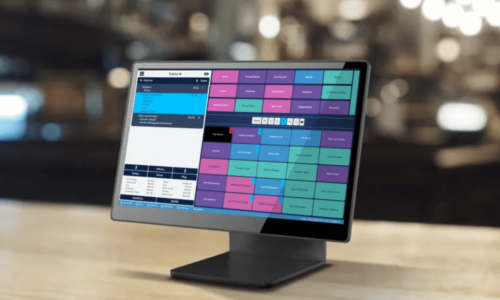In today’s fast-paced business environment, efficient management of resources is critical for success. One of the essential components of this efficiency is the proper handling of inventory. As businesses grow and supply chains become more complex, manual methods of tracking stock and sales can lead to inaccuracies, inefficiencies, and lost revenue. This is where Inventory Management System Software comes into play.
An Inventory Management System Software is designed to help businesses monitor and control their stock levels, track inventory movement, and ensure the timely restocking of products. In this blog, we will explore the key features, benefits, and importance of using inventory management software and how it can revolutionize business operations.
What is Inventory Management System Software?
An Inventory Management System Software is a digital tool that helps businesses automate the process of managing their stock, whether it’s raw materials, components, or finished products. This software tracks stock levels, orders, sales, and deliveries, providing businesses with real-time data on their inventory.
In contrast to traditional manual methods of inventory management, an automated system allows for accurate, up-to-date tracking of stock across multiple locations, ensuring that businesses always have the right amount of inventory in hand to meet customer needs.
Key Features of Inventory Management System Software
- Real-Time Inventory Tracking: One of the most important features of inventory management software is real-time tracking. Businesses can monitor stock levels as products move in and out of the inventory. This reduces the risk of overstocking or understocking, helping businesses maintain optimal inventory levels.
- Barcode Scanning and RFID: Many modern inventory management systems come equipped with barcode scanning and RFID (Radio-Frequency Identification) capabilities. These features allow for faster and more accurate tracking of items as they move through the supply chain, reducing human error and improving efficiency.
- Order Management: An inventory management system automates the process of order creation and fulfillment. When stock levels drop below a set threshold, the system can automatically generate purchase orders to restock inventory, ensuring that businesses never run out of essential items.
- Multi-Location Management: For businesses that operate across multiple locations or warehouses, an inventory management system can provide a centralized platform to manage stock at all locations. This ensures consistency in inventory levels and allows for better coordination of stock transfers between locations.
- Inventory Forecasting: This software can predict future inventory needs by the help of historical data and inventory management abilities. This helps businesses plan for seasonal fluctuations, promotions, or changes in customer demand.
- Reporting and Analytics: Detailed reports on stock levels, sales trends, and supplier performance are essential for decision-making. Inventory management software provides businesses with the data they need to make informed choices about inventory purchasing and sales strategies.
Benefits of Using Inventory Management System Software
The adoption of Inventory Management System Software offers numerous advantages for businesses of all sizes. Below are some of the benefits:
1. Increased Efficiency
Managing inventory manually can cause errors and can take a lot of time of yours. Inventory Management System Software automates these tasks, reducing the need for manual data entry and freeing up time for employees to focus on more critical aspects of the business. Automation also ensures more accurate stock levels, minimizing the chances of mistakes that could lead to stockouts or overstocking.
2. Cost Reduction
By providing real-time visibility into stock levels, inventory management software helps businesses optimize their purchasing decisions. Companies can avoid unnecessary expenses related to excess inventory, such as storage costs, and reduce the risk of stockouts, which can lead to lost sales and dissatisfied customers. Overall, improved inventory control leads to better cost management.
3. Improved Customer Satisfaction
One of the biggest challenges businesses faces is balancing inventory levels with customer demand. Too little inventory results in missed sales, while too much inventory ties up capital that could be better spent elsewhere. Inventory Management System Software ensures the availability of the products when customers need them, enhancing customer satisfaction and building loyalty.
4. Enhanced Data Accuracy
Manual inventory tracking methods are often riddled with errors, especially as the volume of stock increases. Inventory management software eliminates these errors by automating data collection and updating. Barcode scanning and RFID tracking ensure that every movement of stock is recorded accurately, giving businesses a precise view of their inventory.
5. Better Decision-Making
With the wealth of data provided by inventory management software, businesses can make more informed decisions about inventory purchasing, sales strategies, and warehouse management. Detailed reports and analytics allow businesses to track sales patterns, identify slow-moving stock, and forecast future inventory needs based on historical data.
6. Scalability
Inventory Management System Software is scalable, allowing businesses to manage larger volumes of stock, additional locations, and more complex supply chains. Whether you’re a small business or a large enterprise, the software can adapt to your growing needs.
7. Integration with Other Business Systems
Most inventory management software integrates seamlessly with other business systems, such as accounting, sales, and e-commerce platforms. This integration ensures that data flows smoothly between systems, providing businesses with a unified view of their operations. For example, sales made on an e-commerce platform will automatically update inventory levels, ensuring that stock counts are always accurate.
Choosing the Right Inventory Management System Software
Not all inventory management systems are created equal, and choosing the right software depends on the specific needs of your business. When selecting an Inventory Management System Software, consider the following factors:
1. Scalability
Your inventory management software should be able to grow with your business. Whether you’re managing one warehouse or multiple locations, the software should be able to handle your expanding needs without compromising on performance.
2. Ease of Use
An intuitive interface is crucial for ensuring that your team can easily adopt the new system. Look for software that offers a user-friendly design, clear navigation, and accessible support resources.
3. Integration Capabilities
Your inventory management system should integrate with the other software platforms your business uses, such as accounting, ERP, and CRM systems. This integration ensures smooth operations across departments and helps eliminate data silos.
4. Customization
Every business has unique inventory management needs. Look for software that can be customized to fit your specific workflow, reporting requirements, and industry regulations.
5. Mobile Access
Mobile access is essential for businesses that need to manage inventory from different locations or on the go. Look for software that offers a mobile app or responsive design, enabling your team to track inventory from their smartphones or tablets.
The Role of Inventory Management Software in Different Industries
Inventory management software is not a one-size-fits-all solution. Different industries have different inventory challenges, and the software must be tailored to meet these needs.
- Retail: Retail businesses require real-time tracking of inventory levels across multiple stores and warehouses. The ability to forecast demand and prevent stockouts is critical to maintaining customer satisfaction.
- Manufacturing: For manufacturers, inventory management involves tracking raw materials, components, and finished products. Software that integrates with production systems is essential for optimizing the supply chain.
- Healthcare: In the healthcare industry, tracking the expiration dates of medical supplies and ensuring timely restocking is critical for patient care. Inventory management software helps maintain a well-organized and efficient supply chain.
- E-commerce: E-commerce businesses rely on accurate inventory data to keep up with high order volumes. Inventory management software ensures that stock levels are updated in real time, reducing the risk of overselling and enhancing customer satisfaction.
Conclusion
In an increasingly competitive business landscape, efficient inventory management is no longer optional, it’s a necessity. Inventory Management System Software offers businesses the tools they need to streamline operations, reduce costs, and enhance customer satisfaction. By automating key processes, improving data accuracy, and providing valuable insights into stock levels, businesses can make more informed decisions and ensure long-term success.
For any business that relies on inventory, whether it’s retail, manufacturing, healthcare, or e-commerce, investing in a robust Inventory Management System Software is a smart move that will pay dividends in efficiency, cost savings, and customer satisfaction.



